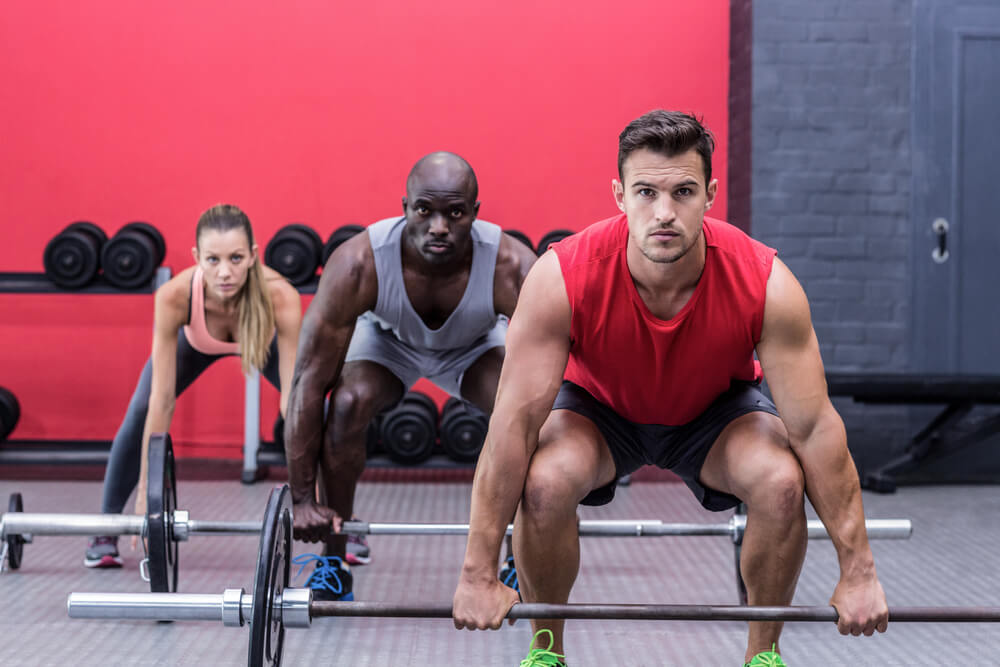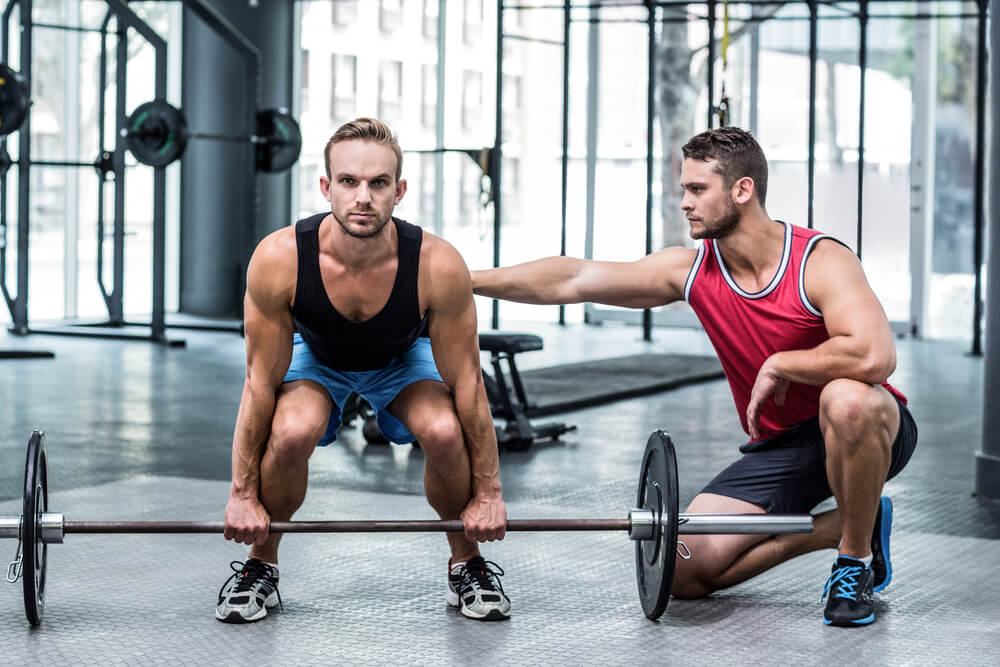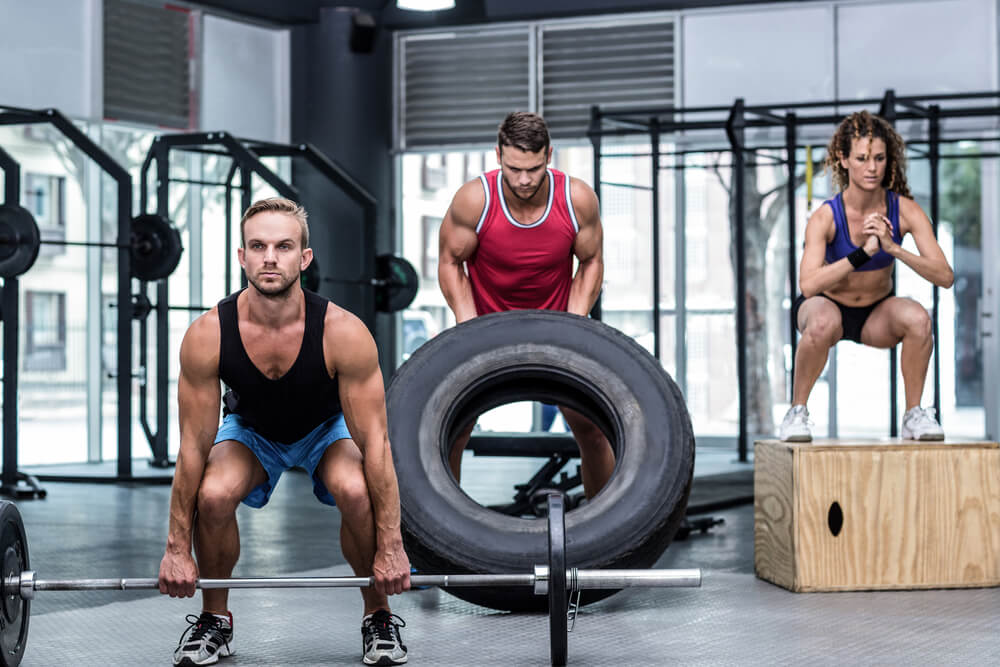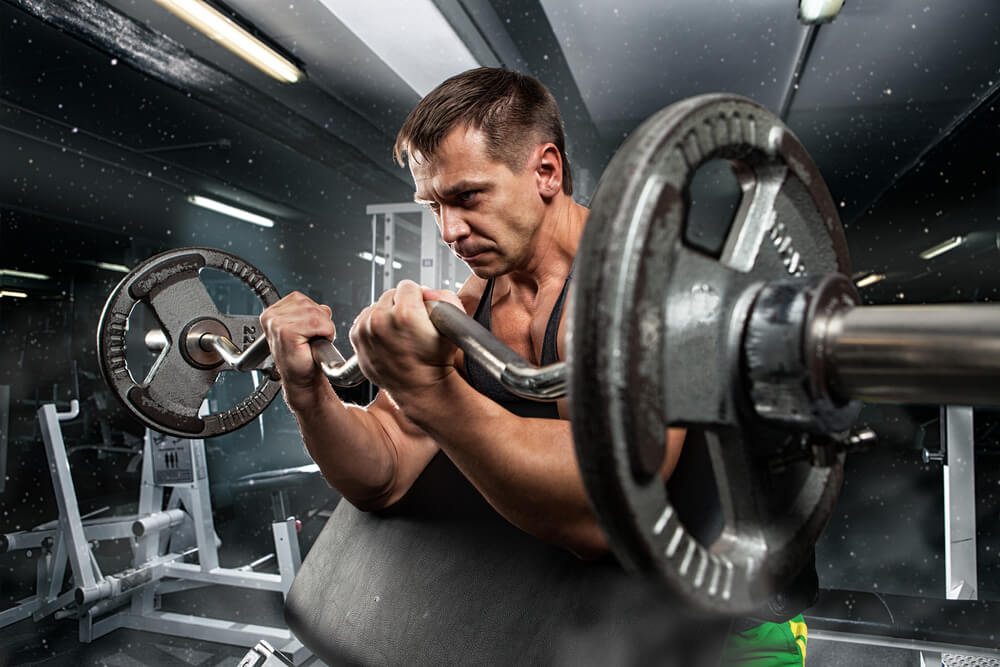
Looking to kick start your muscle gains? You came to the right place! We’ve got details on a 3-day workout routine that should fit your needs.
Are you new to strength training?
Do you need a kick-start before the summer season is well underway?
Maybe you’re an avid gym-goer but can’t seem to pack on muscle like you want to. Whether you fit into any those three categories or not, the fact is that a lot goes into building muscle and getting into shape.
The market is flooded with books, magazines and websites telling you which workout is the best, what foods you should eat or avoid, the latest on fad diets and much more. It can be overwhelming when you are new to something to have all of that and have no direction, though. It doesn’t have to be that hard.
First, there is no one-size-fits-all workout. Everyone is different and certain exercises may or may not work best for them, depending on how much time they have, equipment available and experience level. No matter what the factors are though, all workouts should follow similar protocols.
Second, exercise is important, but if you’re not feeding your body the proper fuel, you are not going to receive the best results. You would never put low-grade fuel in a Ferrari so don’t put fast food in your body.
Lastly, consistency is key. Being consistent with your workouts and making it routine will help you achieve the results you desire. While a lot of different factors go into reshaping your body, creating muscle and gaining strength, a simple three-day program emphasizing compound movements along with a healthy dose of cardiovascular training, proper nutrition and rest will get you on the right track.

3-Day Workout Routine Rules
You Need To Do Strength Training
No matter what your age is, strength training should be a part of everyone’s life. The benefits of resistance training include building lean muscle, developing strong bones and tendons, controlling your weight and helping with everyday activities.
So why doesn’t everyone strength train?
Not everyone has to be a part of the 1,000-pound club to strength train.Body weight workouts, resistance band training, suspension training and dumbbells and barbell training are all forms of strength training. A 20-year old novice lifter is not going to be lifting the same amount as a 35-year old pro athlete and that’s okay.
What they should have in common though is following the 80/20 rule and performing full body workouts. The 80/20 rule is 80% compound movements and 20% isolation exercises. Compound exercises are the foundation for any strength-training program. They target multiple muscle groups as opposed to isolation movements that hit only one group. Squats, deadlifts, presses, and rows are all examples of compound exercises and full-body movements.
Why focus on compound movements?
First, these moves allow you to lift more weight because more muscles are involved. Lifting heavier loads will help build strength and muscle faster. It loads also cranks up testosterone and human growth hormone levels in the body, which contribute significantly to muscle growth and fat loss.
Performing these moves also allows you to be more efficient, burn more calories and have greater workout flexibility. With a split-body program, missing one workout day can throw off your whole program because you may miss a specific muscle group. With a full-body workout plan, you will not run into this problem.
You Need To Be Doing Cardio
Along with strength training, cardiovascular training is an important part of a workout plan. Whether it is moderate steady-state cardio or high-intensity interval training (HIIT), incorporating some sort of cardio will aid in transforming the body.
Cardiovascular training is important because it conditions the heart, lungs and circulatory system to transport oxygen more efficiently. Improving your cardiovascular system helps to burn more calories and advance endurance, which also helps progress strength training.
For beginners, steady-state cardio exercise is a good place to start and improve your cardiorespiratory fitness. Whether that is walking, jogging, biking or using the elliptical, starting here will not tax the system too much. Once you’ve established a solid base, start sprinkling in HIIT.
This can be referred to as a cardio blitz. Meant for short bursts of all-out effort, performing sprints or biking intervals, two prime examples, will keep the body burning calories well after your exercise is complete. It’s also very efficient as performing a couple of sets will get the job done and rev your metabolism up.
How do you implement all of this?
Before any workout, it is important to do a dynamic warm-up. Start by doing some range of motion stretches that get the body heated up and ready to tackle the workout. Do a five-minute routine of shoulder circles, high knees, butt kicks, jumping jacks and lateral shuffling. This will get your body primed for action.

3 Day Workout Split
This Is Day 1
With that in mind, let’s starts Day 1 of the three-day plan. For each exercise perform three sets of 8 to 12 reps with about 60 seconds of rest in between. If you feel you can do more than 12 reps after your set is complete, you need to add more weight.
After a good warm-up, it’s time to squat. Instead of thinking about just what muscles the exercises hit, think of it in terms of movement. Squats are quadriceps dominant exercises and one of the best exercises you can perform for not only the lower body, but also the full body. If you are a beginner, it is vital to master the bodyweight squat before you progress to a weight-loaded one.
Start with your feet a little more than hip-width apart and the toes pointed out slightly. Tighten your core and initiate the movement by pushing the hips back and bending the knees at the same time. Lower your body until the thighs reach 90-degrees, pushing your knees out and keeping them behind the toes. Once you’ve reached 90-degrees, push back to the start.
Want more of a challenge?
Start by grabbing a dumbbell or kettlebell and doing a goblet squat, holding the weight against your chest as you perform the squat.
If you want some serious weight, it’s time to get in the squat rack and do the back squat. Perform the squat with a barbell on your back. Not only will your lower half be torched, but also your abs and back extensors will be firing on all cylinders.
While squats are bilateral and hit both sides equally, it’s important to incorporate some unilateral, or single-limb, training as well. This not only helps with stability and balance but also can help with muscle imbalances. The single-leg deadlift is a great exercise that focuses on balance and posterior strength and stability.
Grab a light weight and place it in your right hand. Keeping the back straight and core engaged, you should lift your right foot off the floor. Hinge at the hips keeping the left leg straight and take the right leg back. Go until you feel a full stretch in your hamstring before returning to the starting position. Perform this on both sides.
The next move is a vertical pushing movement and it’s something we do every day outside of the gym. The overhead press can be performed with dumbbells or a barbell. Starting with the dumbbells or barbell at your shoulders, press the weight to the ceiling until your arms are fully extended. The standing overhead press is much more than just shoulder work and requires a great deal of core strength and stability. Try to maintain a neutral spine, not overarching your back to finish the movement as that can place a great deal of stress on your lower back.
The last exercise of day one is a biceps curl, an isolation exercise. After taxing the muscles with compound work, it’s time to get in some arm work. Grab a barbell or dumbbells with an underhand grip. With arms fully extended, and keeping the elbows lined up with your armpits, bend at the elbow as you curl the weights to you shoulders. Lower them back until the arms are fully extended. After strength training, do 30 minutes of steady-state cardio or 5 to 10 minutes of high-intensity interval training of your choice.
This Is Day 2
Day two should not be performed the day right after your first workout. Try to have at least a day of rest in between each strength-training day to allow your muscles to fully recover. A Monday/Wednesday/Friday split would work well for most.
The first exercise is the bench press. A horizontal pushing exercise, the bench press targets the chest, core, arms and shoulders. It is one of the best upper body exercises you can have in your training program.
Using a pair of dumbbells or a barbell, lay flat on a bench. With your feet on the floor, grip the dumbbells or barbell equal distance apart. Lower the weight, bending the elbows until the weights reach your chest. Do not allow your elbows to go straight out to the sides, but instead allow them to slightly come in toward your body. This places you in a stronger position and at less risk for shoulder and elbow problems. Press back to the top, fully extending your arms to finish the movement.
The next exercise is a vertical pulling exercise and is a true test of relative strength. Pull-ups torch the entire backside of the upper body, as well as the arms and core. If you’re a beginner and can’t do a rep, perform it using a band on your foot or use an assisted pull-up machine.
Grab the pull-up bar with an overhand grip and hands slightly more than shoulder-width apart. Without swinging for momentum, pull yourself up until your chin is above the bar before lowering yourself to the bottom.
Need more of a challenge?
Place a weight in between your legs for weighted pull-ups.
The next two exercises are stability exercises that focus on the core region. The plank and side plank are isometric holds meaning the muscles are activated without joint movement. The front plank is performed on the forearms with the elbows directly below your shoulders.
Keeping your spine straight lift your knees off the floor and maintain a plank for 30 seconds. The side plank is a bit more challenging as there are less points of contact. Set up on your side with one elbow on the floor directly below your shoulder. Straighten your legs and lift your hip off the floor. Hold this straight-line position for 30 seconds. Follow this with moderate-intensity cardio or a session of interval training.
This Is Day 3
The deadlift starts the third and final workout day and engages nearly every muscle on your body. Primarily for the posterior region, this hip-dominant movement requires the full body to be in sync.
Start by lining up your ankles, knees and hips with your shins against a barbell. Bend at the hips, keeping your back straight and some bend in the knees. Grip the barbell with an overhand grip slightly wider than hip-width. Initiate the movement by powering up until you reach full extension with the body before lowering back into the starting position. The hamstrings will be fully engaged, as well as your back and glutes. If you are rounding at the back, use less weight so you can keep the spine in neutral.
Next is more single-leg training with forward lunges. Start by using just your bodyweight to master the movement. Stand tall and initiate the movement by lunging forward with your right leg until the knees reach 90 degrees. Push off until you reach the starting position and then do the same with the other leg. Like the squat, keep the knee on the lunging leg from going past the toes as this limits the risk of a knee injury. If that’s too easy, grab a pair of weights and perform the lunges.
Next is a horizontal pulling motion with the inverted row. Another test of relative strength, this involves using either a barbell in a squat rack or a suspension trainer such as the TRX suspension trainer. Get your body under a barbell in the squat rack or grab the handles on the suspension trainer with an overhand grip.
Straighten your legs and pull yourself up, bending the elbows until they reach 90 degrees before lowering yourself back down. The difficulty level depends on the angle of your body. The more parallel you are with the floor, the more challenging it is.
The last strength training exercise targets the triceps and is an isolation move. The triceps overhead extension is performed standing with a single dumbbell. Grab the dumbbell with both hands, cupping one end. Bring it behind your head and, keeping your elbows in line with your shoulders, press the dumbbell overhead until your arms are fully extended before lowering it back to the start. End with moderate cardio or interval training.
Conclusion
This workout program sticks to the basics. It is effective, efficient and hits the entire body. You can’t leave the gym and abuse your body, though. Make sure you rest on your off days. Some light cardio and stretching is okay to perform to keep the muscles loose and on the road to recovery.
You must also fuel your body with the right foods. Cut out processed foods. Forget about fast food. Eliminate foods with added sugars. Stick to lean meats, fish, whole grains, vegetables, and fruits. These all provide your body with the necessary fuel to transform itself.
Are you too busy with your life?
Work and family get in the way?
Plan ahead. Cook larger portions to fill several meals. Package vegetables and fruits in small bags so you can grab them and go. From working out to getting the proper rest to good nutrition practices, following this workout and putting these tips into action will help you transform your body.
By Adam Clark, CPT
Latest posts by Terry M (see all)
- Garage Gyms - Aug 1, 2018
- Kettlebells – Why They Should Be Added To Your Routine. - Jul 24, 2018
- Weight Belts: What Are They Really For? - May 31, 2018










Want to look shredded while maintaining a fun and active social life? Do it by hitting the gym hard only 3 days per week! Here’s the plan. While each routine has stated workout days of Monday, Wednesday and Friday, any other three nonconsecutive days each week can be used. You can just as easily train on Tuesdays, Thursdays, and Saturdays if it would be better for you. Be sure to program at least one full rest day between training days. Be on the way to a better, buffer body.
Your 3-day workout tip and routine is really best because I followed it and I see the result quickly.